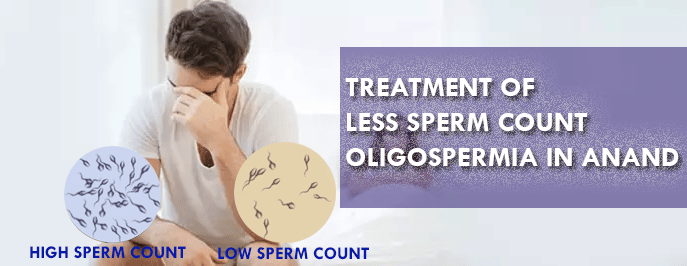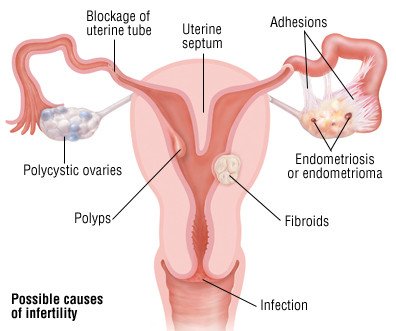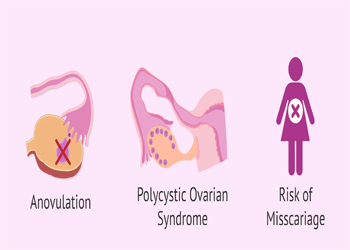Oligospermia: Do you have Less Sperm count ? - Usha IVF
Low sperm count is a symptom of oligospermia, a male fertility problem. Male infertility is frequently caused by a low sperm count. It indicates that when you discharge the sperm during orgasm, the fluid contains less sperm than usual. A condition known as azoospermia occurs when there is no sperm in the sperm.
What Causes Oligospermia or Low Sperm Count and How to Treat It!
A total absence of sperm is called azoospermia. If you have fewer than 15 million sperm per millimeter of sperm, your sperm count is considered poor.
Low sperm counts reduce the chances of one of your sperm fertilizing your partner’s egg and resulting in pregnancy. Despite this, many men with low sperm counts can nonetheless father a kid.
4.88%, 4.88 %, and 6.10% of patients had mild, moderate, and severe oligozoospermia, respectively. Total motility (40%) and progressive motility (32%) were found in 13.41% and 15.85%t, respectively. Tail to tail Grade 1+ sperm agglutination was the most prevalent type (10.98%). Normozoospermia (63.41%), Normozoospermia with Hypospermia (14.63%), and Oligo-asthenic-necro-zoospermia were the most common findings (3.66%). Conclusion: The majority of male infertility cases are caused by oligozoospermia, which is followed by asthenozoospermia.

Who can treat low sperm count?
Well experienced and qualified Sexologists or Infertility specialists can treat low sperm count. Based on the sperm analysis, they can assess the problem related to low sperm count and provide an appropriate treatment course.
Causes of Oligospermia:
Infertility can be caused by a variety of causes, the most frequent of which is oligospermia. There are several variables that contribute to oligospermia. Let’s have a look at it!
- Varicoceles are usually signs in a man’s scrotum that cause blood flow in the testicles to halt or cease. The fever in the testicles increases, resulting in a reduced sperm count.
- Retrograde ejaculation: ejaculation problems might develop oligospermia in some men. It’s a condition in which sperm backs up in the bladder instead of exiting the penis. It usually occurs as a result of specific health issues such as back difficulties, diabetes, accidents, cancers, and infections, among others.
- Infection: When a virus enters the body through sexually transmitted infections, it has a detrimental effect on sperm production.
- Excessive use of medications such as antibiotics, blood pressure medications, and antihypertensive medications has a direct impact on sperm production.
- Ejaculation requires hormonal balance, hence ejaculation problem is associated with low testosterone and high prolactin levels.
- Oligospermia can also be caused by a genetic condition in which the Y chromosomes are deleted or changed.
- Chronic Stress: Mental well-being is just as vital as physical well-being. When you’re worried for a long period, it has an effect on your hormone levels, which might lead to oligospermia.
- Alcohol, smoking, drugs, and caffeine use all have an effect on sperm production.
- Heat, radiation, metals, and chemicals: Excessive exposure to chemicals, metals, and radiations, as well as frequent hot baths, cause the testicle to overheat and produce oligospermia.
- People today chose a sedentary lifestyle that involves physical activity, resulting in obesity, which has a negative impact on sperm production.
Treatment options for oligospermia include:
- A small surgery will be performed to close or cut off the vein related to the varicoceles and reroute blood flow into another vein.
- Medication: Your doctor will prescribe various therapies to help you produce more sperm. It may or may not increase sperm count, but it will prevent a higher sperm count.
- Hormone treatment includes a variety of vitamins, injections, and drugs to raise hormone levels.
- Changes in lifestyle, such as switching to nutritious foods, giving up smoking, avoiding drugs and alcohol, avoiding caffeine consumption, reducing medicine intake, regular physical activity, yoga, stress treatments, and avoiding high temperatures, can all help to overcome oligospermia.
- Assisted reproductive techniques: If you and your partner wish to start a family, you can try IVF (In Vitro Fertilization), IUI (Intrauterine Insemination), and ICSI (Intracytoplasmic Sperm Injection), Surrogacy, and other fertility procedures.



